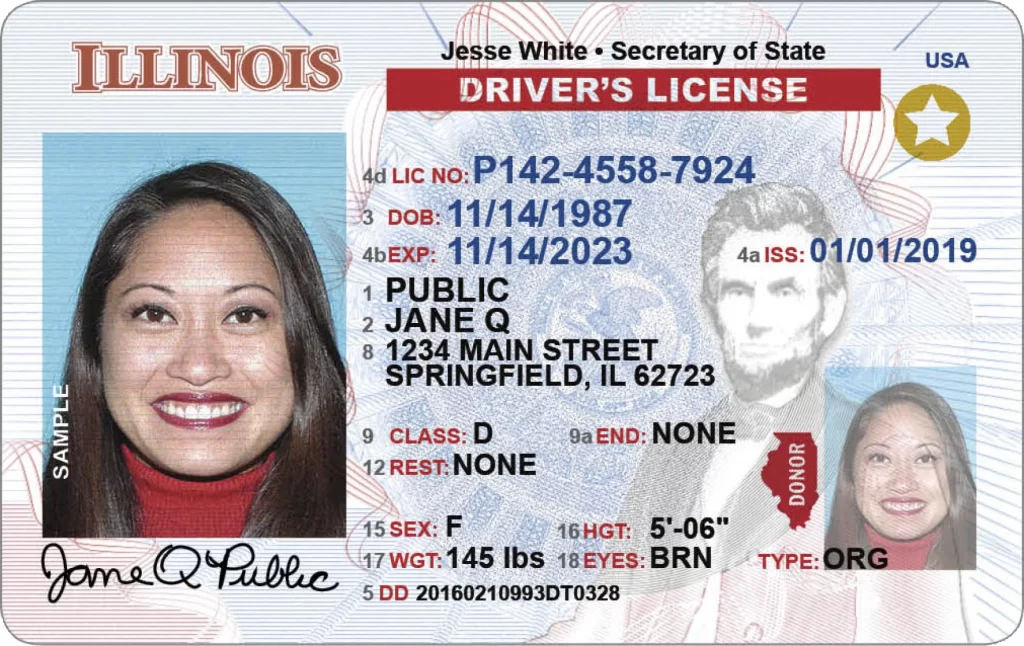Illinois
ID Scanning Laws
In Illinois, hotels are allowed to scan and retain information obtained from IDs for specific purposes, including:
- Verifying a customer’s age
- Establishing a customer’s identity
- Disclosing such information to another business for verifying a check payment, evaluating creditworthiness, detecting or reducing the risk of fraud, abuse, identity theft or other crimes, collection activities, or confirming that a customer has met the motor vehicle financial responsibility requirements.
- Disclosing such information to the department of transportation, insurance licensees, notaries, financial institutions if permitted by federal law, or law enforcement agencies.
These permissions are governed by the Illinois Personal Information Protection Act (815 ILCS 530/), which provides a framework for the collection, use, and disclosure of personal information.




Illinois State Legislature
ID Scanning Resources
The Legal Framework
Illinois ID Scanning Laws and Regulations
In Illinois, as in many states, the use of ID scanning technology is a common practice in various sectors, including the hotel industry. This technology serves multiple purposes, such as verifying a customer’s age, establishing a customer’s identity, confirming a customer’s license status to operate a vehicle, and more. However, the use of this technology is regulated by state laws to protect individuals’ privacy rights and prevent misuse of personal information.
llinois Personal Information Protection Act (815 ILCS 530/)
The Illinois Personal Information Protection Act (PIPA), enacted in 2005, is a comprehensive law that governs the collection, use, and disclosure of personal information in the state. The Act defines personal information as an individual’s first name or first initial and last name in combination with any one or more of the following data elements, when either the name or the data elements are not encrypted or redacted:
- Social Security number.
- Driver’s license number or State identification card number.
- Account number, credit or debit card number, in combination with any required security code, access code, or password that would permit access to an individual’s financial account.
The Act requires any data collector that owns or licenses personal information concerning an Illinois resident to implement and maintain reasonable security measures to protect those records from unauthorized access, acquisition, destruction, use, modification, or disclosure.
Use of ID Scanning in Hotels
Hotels in Illinois often use ID scanning technology to quickly and accurately capture guest information at check-in. This technology can help hotels streamline their operations, reduce the risk of fraud, and ensure compliance with local laws and regulations.
Under the PIPA, hotels are allowed to collect and retain the personal information contained on a guest’s ID for the purposes of verifying the guest’s identity and age. This information can also be used to confirm a guest’s license status to operate a vehicle, if relevant.
Hotels are also permitted to disclose the information obtained from a guest’s ID to another business for specific purposes, such as verifying a check payment or evaluating the guest’s creditworthiness. This disclosure is also allowed for the purposes of detecting or reducing the risk of fraud, abuse, identity theft, or other crimes, or for collection activities.
In addition, hotels can disclose a guest’s personal information to the Department of Transportation, insurance licensees, notaries, financial institutions (if permitted by federal law), or law enforcement agencies.
However, it’s important to note that the PIPA requires hotels to implement and maintain reasonable security measures to protect the personal information they collect from unauthorized access, acquisition, destruction, use, modification, or disclosure. This includes ensuring that their ID scanning technology is secure and that the data it collects is stored in a secure manner.
In the hotel industry, ID scanning serves several purposes:
Verifying a customer’s age: This is particularly important in situations where age restrictions apply, such as booking certain types of rooms or purchasing alcohol.
Establishing a customer’s identity: This helps hotels ensure that the person checking in is indeed the person who made the reservation.
Confirming a customer’s license status to operate a vehicle: This is relevant in cases where the hotel provides valet parking services.
Disclosing such information to another business for specific purposes: These purposes may include verifying a check payment, evaluating creditworthiness, detecting or reducing the risk of fraud, abuse, identity theft or other crimes, collection activities, or confirming that a customer has met the motor vehicle financial responsibility requirements.
Disclosing such information to certain entities: These may include the department of transportation, insurance licensees, notaries, financial institutions if permitted by federal law, or law enforcement agencies.
Legal Framework
The use of ID scanning technology in Illinois is regulated by various state laws. These laws are designed to protect the privacy rights of individuals and prevent the misuse of personal information. While I am unable to access the specific Illinois statutes at this time, it’s important to note that these laws typically stipulate the conditions under which personal information can be collected, how it can be used, and how long it can be retained.
In general, businesses are required to obtain consent from individuals before scanning their IDs. They are also required to inform individuals about the purpose of the scanning and how their information will be used. Furthermore, businesses are typically prohibited from selling or sharing the information obtained through ID scanning without explicit consent from the individual.
Please note that this information is intended to provide a general overview and does not constitute legal advice. Always consult with a legal professional for advice specific to your situation
Illinois Anti-Trafficking Network
Our Fight Against Human Trafficking



Knowledge Base
Frequently Asked Questions
Yes, hotels in Illinois can scan IDs for legitimate purposes such as verifying a customer's age, establishing a customer's identity, and more.
Hotels use ID scanning devices that read the information contained in the barcode or magnetic stripe of an ID. The information is then stored in the hotel's system for the purposes stated above.
Hotels can scan IDs at the time of check-in or at any other time when it's necessary to verify a customer's age, establish a customer's identity, or for any other legitimate purpose.
Hotels can obtain information such as the customer's full name, date of birth, address, and driver's license number. However, they are typically prohibited from obtaining sensitive information such as social security numbers.
While I don't have the specific details for Illinois, in many states, misuse of personal information obtained through ID scanning can result in severe penalties, including fines and imprisonment.
Customers have the right to be informed about the purpose of the ID scanning and how their information will be used. They also have the right to refuse to have their ID scanned, although this may result in the hotel refusing service.
